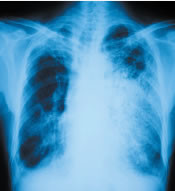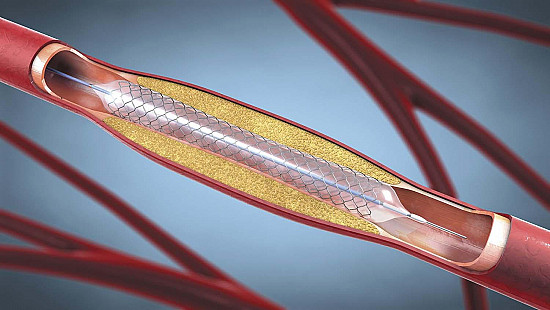Heart attack risk rises after a bout of pneumonia
|
If you're hospitalized with pneumonia,your heart attack risk may rise in the following month. Image: Thinkstock |
If you're over 65, be sure to follow the latest pneumonia vaccine guidelines.
Each year, about a million people in the United States end up in the hospital with pneumonia, a serious lung infection that can be caused by an array of different viruses, bacteria, and even fungi. New research suggests that older people hospitalized with pneumonia face four times their usual risk of a having a heart attack or stroke or dying of heart disease in the month following the illness.
The risk declines over the following year, according to the report, published in the Jan. 20, 2015, Journal of the American Medical Association. Infections put added stress on your heart, forcing it to work harder. Your body's efforts to fight the infection also trigger unhealthy changes inside your arteries, such as releasing chemicals that can make blood more likely to clot, which can lead to a heart attack or stroke.
"Serious infections like pneumonia are linked to a higher risk of heart attack as well as worsening heart failure in people with that condition," says Dr. Scott Solomon, a professor of medicine at Harvard Medical School. For older people, the pneumonia vaccine may help prevent these dangerous complications, but an annual flu shot is also important, he notes. The same virus that causes the flu can also cause viral pneumonia in some people and nudge others to develop bacterial pneumonia.
Pneumonia symptoms
The symptoms of pneumonia are similar to the flu: fever, muscle aches, and headache. But your cough is usually worse (sometimes producing yellow, green, or even bloody mucus), and you may have trouble breathing. For example, you may get winded going up just a few stairs, when you normally walk up two flights without a problem. Older people with pneumonia sometimes don't have a fever or a cough, but they may be confused or complain of pain when taking a deep breath.
Two vaccines
The Centers for Disease Control and Prevention recommend that people ages 65 and older receive two different vaccines— PCV13 (Prevnar 13) and PPSV23 (Pneumovax). If you're in that age group and have already had your one-time Pneumovax shot, the CDC recommends getting a Prevnar 13 inoculation a year later. If you haven't had a pneumonia vaccine, you're advised to get a Prevnar 13 shot first, followed by a Pneumovax injection six to 12 months later.
Disclaimer:
As a service to our readers, Harvard Health Publishing provides access to our library of archived content. Please note the date of last review or update on all articles.
No content on this site, regardless of date, should ever be used as a substitute for direct medical advice from your doctor or other qualified clinician.
















